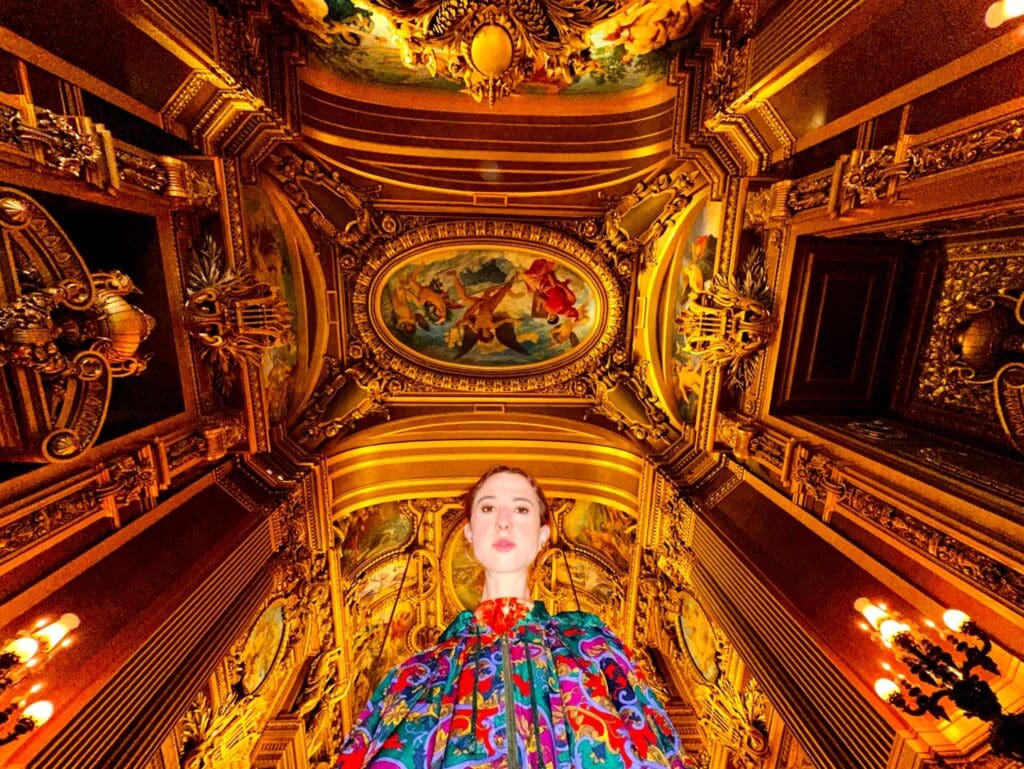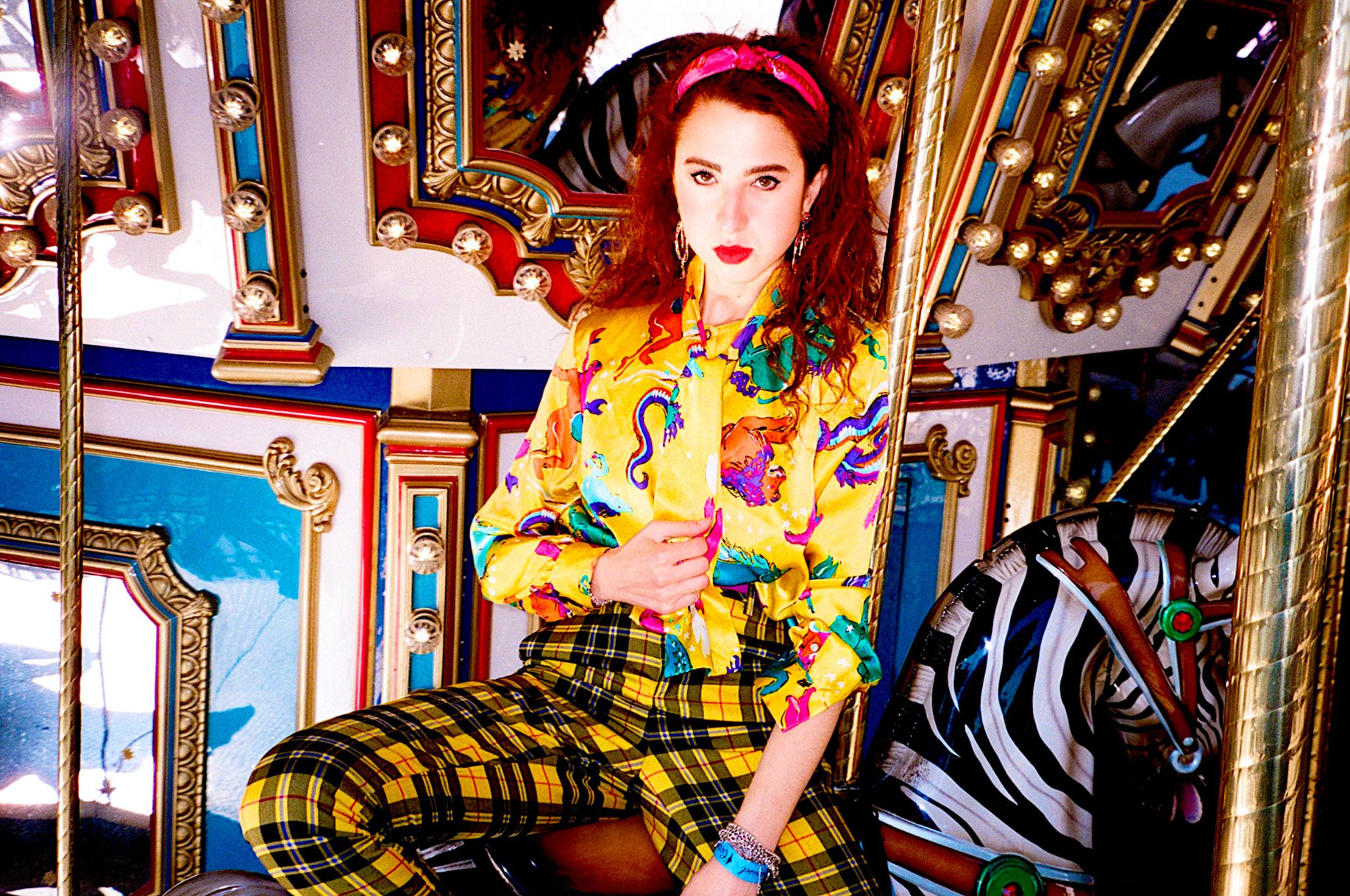Becca Willow Moss is a Canadian-Jewish actress, director and producer reshaping the artistic landscape through her innovative fusion of acting, singing and hyper-stylized filmmaking. Her recent directorial project, We Three Queens, is an offbeat dramedy web series about a struggling daycare worker and his escort boyfriend trying to make ends meet while living with a scrappy old widow. Its unique blend of humour, drama, and heartwarming storytelling has already garnered considerable attention from audiences. Additionally, her 11-minute short documentary, It’s What Each Person Needs, premiered at the 2022 Toronto International Film Festival and showed at Vancouver International Film Festival, and has audiences eavesdropping on phone conversations with the voices on the other end of the line each desiring something different. These chats revolve around memory, singing, reassurance and pure love. We chatted with Becca to learn more. —Noa Nichol

Tell us a little bit about yourself and your projects.
I am a big advocate for using artistic outlets to express my emotional landscape. As an actor, singer, director, writer, and multimedia artist, I look to use art as a means to connect with others. My inspiration is for people to see themselves reflected in my projects and to offer them that feeling of human connection. others. I am also a classically trained soprano and have used this medium extensively in my work with the 65 and older community.
The 11-minute short It’s What Each Person Needs is a glimpse into your phone conversations with the elderly and determining what each person needs – what was that process like for you?
The film was based on an essay I wrote that depicted my COVID-19 experience. I juxtapose my work with older individuals with artistic expression and sex-positive explorations. I believe humans are multifaceted and complex, and films such as mine destigmatize the ever-changing qualities to identity! Working with this team was a privilege. I entrusted Sophy Romvari and the talented Maya Bankovic with the vulnerability of my older friends and potential new clients. I am grateful for the opportunity to shed light on the subject of loneliness and its prevalence in our society. I hope those who see the film know they are not alone: and we are all deserving of companionship.
You do a lot of work with Seniors. Why is this demographic so important to you and what is the connection for you?
As a young child, I felt unconditional love from the seniors around me. I had stage fright in my youth and felt cherished when signing in Retirement homes. I volunteered in long-term care residences in grade and high school and noted their needs. The ears of the older population encouraged my pursuits, but I could never abandon them. They taught me to crochet, to play canasta, and they sang the choruses of Golden Age Musicals. Moreover, our exchanges informed me of society’s need to tend to isolated individuals, and made me aware of the ageism built into North American society. . I am an artist: I use my focus on elderly people to dismantle their demise.
You use your art as a form of connection to your audience – what is it that you hope they take away from your projects?
Absolutely! Connection with people is at the forefront of my endeavours. I write and am captivated by projects that address topics denoted as difficult, triggering and morose. And use my colourful palette and calculated direction to bring attention to issues of depression, illness and closure. My thesis film: Goodbye, Dolly, references the acclaimed Hello, Dolly! – a 1969 American musical. The original Hello, Dolly! avails punctuation: it uses an exclamation mark. Fittingly, my Goodbye, Dolly exclaims via nuance, inflection and visuals. As a stylized script, it references tropes of the 1964 Broadway production of Hello, Dolly! Goodbye, Dolly hybridizes theatrical elements within the context of everyday life, based on my growing up as, and growing into, a Jewish woman. An autobiographical project, Goodbye, Dolly tackles themes of grief and is reflective of my own journey.
What’s next for you?
I am directing a film in Paris during, and acting in a short in Toronto this fall As a director, I embrace hybrid-realism. My style has been coined as “Borat Meets Chantal Akerman.” I aspire to be a conduit for stories that are emotionally challenging.As an actor, my biggest goal this year is to focus on acting roles that push my boundaries. I seek directors with whom I can commit to a role that sheds light on difficult social topics.

Be the first to comment